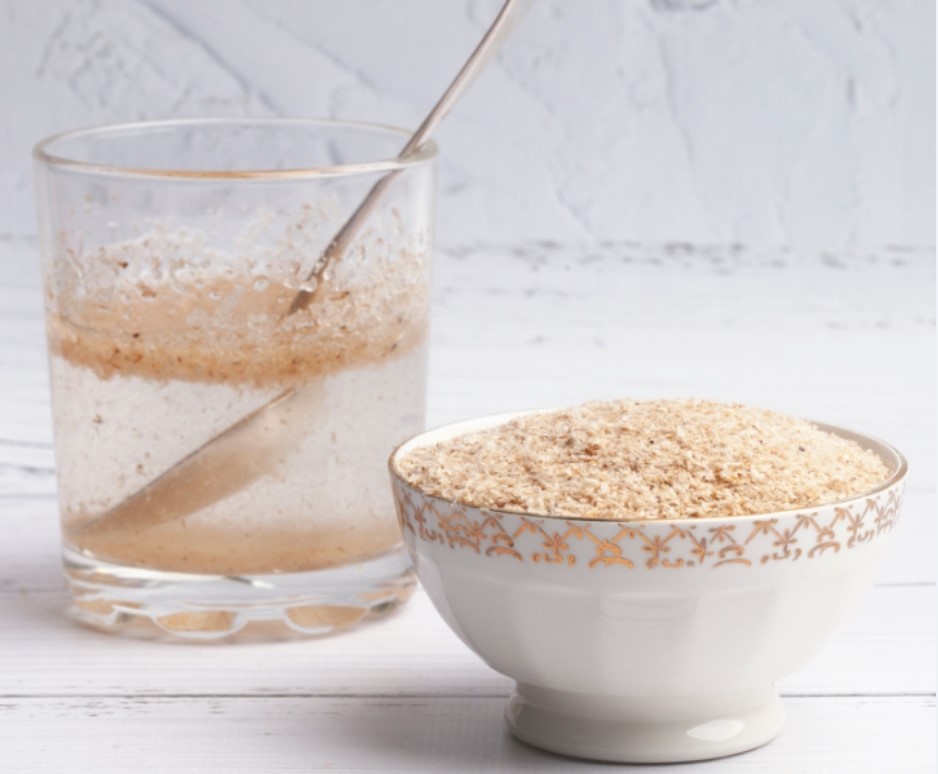Do you wake up with a racing heart, churning stomach, and an overwhelming sense of dread? You’re not alone. Morning anxiety affects millions of people worldwide, turning the start of each day into a battle against intense worry and physical discomfort.
This common experience goes beyond typical morning grogginess. Morning anxiety manifests as a distinct pattern of heightened stress and worry that peaks shortly after waking. Many people describe it as feeling immediately “switched on” to stress mode, even before their feet hit the floor.
Understanding morning anxiety is crucial for your mental well-being. When you recognize these morning struggles as a specific form of anxiety, you gain the power to:
- Identify your unique triggers
- Develop effective coping strategies
- Create a morning routine that supports your mental health
- Take control of your day from the first moment
Your morning anxiety isn’t a personal failure – it’s a real phenomenon with biological and psychological roots. By learning about its causes, symptoms, and management techniques, you can transform your morning experience from one of dread to one of calm and clarity.
However, it’s important to remember that physical health also plays a significant role in our overall mental well-being. For instance, managing weight effectively can alleviate some physical discomfort associated with anxiety. You might want to explore options such as Phentermine vs. Ozempic, two medications known for their effectiveness in weight management.
Additionally, if you’re considering fasting as a method for weight loss or gut health improvement, understanding the 96-hour fast could provide valuable insights. This approach has its benefits and risks which should be understood for safe practice.
If you’re dealing with diabetes alongside your anxiety, it’s essential to know the differences between medications like Jardiance and Ozempic, both of which are used in Type 2 diabetes management.
Finally, never underestimate the power of proper hydration on your mental health. It plays a vital role in overall health and wellness including cognitive performance and weight management. For more information on this topic, consider reading about how proper hydration impacts your overall health.
Understanding the Causes and Triggers of Morning Anxiety
Your body’s natural alarm system plays a significant role in morning anxiety through a process called the cortisol awakening response (CAR). Within 30-45 minutes of waking, your cortisol levels surge by 38-75%, preparing your body for the day ahead. For some people, this natural spike can trigger anxiety symptoms, especially when combined with other stressors.
Common triggers intensifying morning anxiety include:
- Unresolved conflicts from the previous day
- Anticipated challenges or deadlines
- Financial worries
- Relationship issues
- Work-related stress
- Health concerns
- Major life changes
The quality of your sleep directly impacts morning anxiety levels. Poor sleep patterns disrupt your body’s natural stress response system, creating a cycle where anxiety affects sleep, and poor sleep worsens anxiety. Research shows that individuals who sleep less than 6 hours per night experience heightened anxiety symptoms the following morning.
Sleep disruptions linked to morning anxiety:
- Difficulty falling asleep
- Frequent night wakings
- Early morning awakening
- Restless sleep
- Sleep apnea
- Insomnia
Morning anxiety can also signal an underlying anxiety disorder, particularly Generalized Anxiety Disorder (GAD). People with GAD experience persistent worry about multiple aspects of their lives, making them more susceptible to elevated anxiety levels upon waking. Studies indicate that 6.8 million Americans live with GAD, with morning anxiety being a common symptom.
Your genetic predisposition, brain chemistry, and past experiences shape how your body responds to stress, affecting the intensity of morning anxiety symptoms. Understanding these biological and environmental factors helps create targeted strategies for managing morning anxiety effectively.
In addition to these factors, lifestyle choices such as diet and exercise can also influence both mental health and physical well-being. For instance, medications like Ozempic have been noted for their effects on satiety and weight management. You might find it interesting to explore why you feel prolonged fullness after meals on Ozempic, which could be beneficial if you’re dealing with weight-related stressors that contribute to your overall anxiety.
Moreover, if you’re considering switching medications for diabetes management from Jardiance to Ozempic, it’s essential to understand the implications of such a change. Our guide on switching from Jardiance to Ozempic offers valuable insights in this regard.
Lastly, it’s crucial not to underestimate the impact of external factors like skin health on your mental state. The latest breakthroughs in skincare technology could potentially transform your routine and improve your self-esteem. For more information on these advancements, check out our article on the latest breakthroughs in skincare technology.
On a broader scale, maintaining good health during seasonal changes is vital as well. Implementing proven ways to boost immunity during seasonal changes can help ensure you remain physically fit and mentally stable amidst changing weather conditions.
Recognizing Symptoms and Their Impact on Daily Life
Morning anxiety manifests through distinct physical and emotional symptoms that can significantly disrupt your daily routine. Understanding these symptoms helps you identify and address them effectively.
Physical Symptoms
- Intense stomach discomfort or nausea
- Tightness in chest accompanied by shallow breathing
- Persistent headaches or migraines
- Rapid heartbeat or heart palpitations
- Muscle tension, particularly in neck and shoulders
- Excessive sweating
- Shaking or trembling hands
Mental and Emotional Symptoms
- Racing thoughts about upcoming tasks or responsibilities
- Difficulty focusing on immediate tasks
- Heightened irritability toward family members or coworkers
- Persistent fatigue despite adequate sleep
- Overwhelming sense of dread
- Difficulty making simple decisions
These symptoms create significant barriers to starting your day effectively. You might find yourself:
- Hitting the snooze button repeatedly to avoid facing the day
- Taking twice as long to complete basic morning tasks
- Missing important meetings or appointments
- Struggling to engage in conversations with family members
- Unable to prioritize tasks or create a clear plan for the day
The experience of feeling “paralyzed” in the morning stems from this combination of physical and mental symptoms. Simple tasks like choosing what to wear or preparing breakfast can feel insurmountable. Your productivity suffers as you spend excessive mental energy fighting these symptoms rather than focusing on work or daily responsibilities.
Many people report spending hours trying to “push through” these symptoms, leading to increased stress and reduced performance throughout the day. This cycle can affect your work quality, relationships, and personal goals.
However, certain lifestyle changes can alleviate some of these symptoms. For instance, adopting menopause-friendly nutrition can provide significant relief during this transition period. Similarly, incorporating healthy snacks into your diet can help manage diabetes-related symptoms that may contribute to morning anxiety.
Moreover, exploring new dietary options like butterfly milk, known for its health benefits including antioxidants and support for eye health, could also be beneficial.
It’s also essential to remember that childhood experiences play a crucial role in shaping our mental health later in life. Positive experiences during childhood can foster resilience against adversity and promote overall well-being.
Finally, mastering the art of a balanced diet is crucial for optimal health. Following some essential tips on nutrition and food groups can lead you towards healthier choices, ultimately helping manage those overwhelming morning anxiety symptoms more effectively.
In addition to these lifestyle changes, it’s important to acknowledge the profound impact that stress has on our bodies. Understanding how stress affects our physical health is crucial for managing anxiety effectively
Self-Care Strategies to Manage and Prevent Morning Anxiety
Taking control of morning anxiety starts with implementing effective self-care practices. Physical activity stands out as a powerful anxiety-reducer, with specific exercises proving particularly beneficial:
- Gentle Walking: A 15-minute morning walk releases tension and promotes mental clarity.
- Yoga Flows: Sun salutations and gentle stretches help release physical stress.
- Swimming: The rhythmic nature of swimming creates a meditative state while burning excess energy.
Mindfulness meditation practices create a buffer against anxious thoughts. Set aside 5-10 minutes each morning for:
- Body scan meditation
- Loving-kindness practice
- Silent observation of breath
Deep breathing exercises activate your body’s relaxation response. Try this simple technique:
Box Breathing: Inhale for 4 counts, hold for 4, exhale for 4, hold for 4. Repeat 4 times.
Cognitive strategies help reshape anxious thought patterns:
Gratitude Journaling
- Write three things you’re looking forward to
- List two personal strengths you’ll use today
- Note one positive aspect about your current situation
Thought Challenge Exercise
- Identify the anxious thought
- Rate its intensity (1-10)
- List evidence for and against the thought
- Create a balanced perspective
These self-care practices work best when incorporated gradually into your morning routine. Pick one strategy to start with and practice it consistently for a week before adding another.
Moreover, if you find that these strategies aren’t providing enough relief, there are other options available such as Ketamine therapy, which has shown promising results in treating anxiety disorders. Always consult with a healthcare professional before starting any new treatment or therapy.
In addition to these strategies, maintaining good women’s health is crucial in managing anxiety levels effectively. This includes understanding aspects of reproductive health, preventive care, and overall wellness.
Lastly, dietary choices can also play a significant role in managing anxiety. For instance, exploring the effects of intermittent fasting on metabolic health could provide insights into how diet influences mental well-being.
Remember to prioritize your mental health and seek professional advice when necessary.
When to Seek Professional Help for Severe Morning Anxiety
Morning anxiety becomes a serious concern when it consistently disrupts your daily life and traditional self-help methods prove ineffective. Here are critical signs indicating the need for professional intervention:
Red Flags for Professional Help:
- Persistent physical symptoms lasting more than 2 weeks
- Inability to get out of bed due to anxiety
- Panic attacks occurring multiple times per week
- Thoughts of self-harm or suicide
- Significant impact on work or relationships
- Development of avoidance behaviors
Professional treatment options can provide structured support and evidence-based interventions. A mental health professional might recommend:
Treatment Approaches:
- Cognitive-Behavioral Therapy (CBT): Helps identify and modify anxiety-triggering thought patterns
- Exposure Therapy: Gradually faces anxiety-provoking situations in a controlled environment
- Medication Options:
- SSRIs (Selective Serotonin Reuptake Inhibitors)
- Anti-anxiety medications
- Beta-blockers for physical symptoms
Your healthcare provider can create a personalized treatment plan combining different approaches. They’ll consider factors like:
- Severity of symptoms
- Impact on daily functioning
- Previous treatment history
- Co-existing mental health conditions
- Personal preferences and lifestyle
In some cases, certain medications may have side effects that could exacerbate anxiety symptoms. For instance, Ozempic, commonly used for diabetes management, has been linked to gastrointestinal issues which might intensify morning anxiety. It’s crucial to discuss any potential medication-related concerns with your healthcare provider.
Moreover, incorporating regular exercise into your routine can significantly improve mental health and alleviate some anxiety symptoms. Likewise, considering a plant-based diet may offer long-term health benefits that contribute positively to your overall well-being.
Remember: Seeking professional help isn’t a sign of weakness – it’s a proactive step toward better mental health management.
Coping Techniques for Reframing Anxious Thoughts in the Morning
Reframing anxious thoughts requires practice and specific techniques to break free from negative thought patterns. Here’s how you can transform anxiety-inducing thoughts into balanced perspectives:
The ABCD Method:
- Awareness: Notice the anxious thought
- Break it down: Identify the specific worry
- Challenge the thought: Look for evidence
- Develop a realistic view: Create a balanced perspective
Separating Facts from Feelings:
- Write down your anxious thought
- Underline the emotional assumptions
- Circle the factual elements
- Create two columns: “What I Feel” vs. “What I Know”
Practical Thought-Reframing Examples:
- Anxious thought: “I’ll never get through today’s tasks”
- Reframed thought: “I can handle one task at a time”
Reality-Testing Questions:
- “What evidence supports this thought?”
- “How likely is this outcome?”
- “What would I tell a friend in this situation?”
- “Will this matter in six months?”
Remember to practice these techniques when you’re calm. Start with smaller worries and gradually apply these skills to more challenging thoughts. Keep a thought journal to track patterns and successful reframes.
If one of your worries involves health issues, you might be interested in understanding how certain medications interact with lifestyle choices, such as Wegovy and its interaction with alcohol. This knowledge can help alleviate anxiety related to weight loss management while on medication.
Furthermore, if you’re experiencing physical symptoms like constipation which could be causing additional anxiety, it’s worth exploring potential underlying causes such as Intestinal Methanogen Overgrowth. Understanding these health issues can provide you with a clearer perspective, aiding in the reframing process.
Conclusion
Managing morning anxiety starts with small, purposeful steps. Each morning brings a fresh opportunity to practice self-awareness and implement the strategies you’ve learned. Remember that your anxious thoughts don’t define your day – you have the power to reshape your morning experience.
Start with a single deep breath. Notice the present moment. Your morning routine can become a gentle, mindful practice rather than a source of overwhelm. Break down your tasks into smaller, manageable pieces and celebrate each small victory.
Your morning anxiety toolkit includes:
- Mindful breathing exercises
- Gentle physical movement
- Positive thought reframing
- Professional support when needed
You’re not alone in this journey. Many people face morning anxiety, and recovery happens at your own pace. As you build these new habits and coping skills, you’ll discover your personal path to calmer, more centered mornings.
Take that first step today. Your future self will thank you.
FAQs (Frequently Asked Questions)
What is morning anxiety and how common is it?
Morning anxiety refers to feelings of stress, nervousness, or panic that occur upon waking. It is a prevalent condition affecting many individuals and understanding it is crucial for effective mental health management.
What causes morning anxiety and what are its common triggers?
Morning anxiety is often caused by a physiological surge in cortisol levels after waking. Common triggers include stress related to past or future events, poor sleep quality, and underlying anxiety disorders such as generalized anxiety disorder (GAD).
What are the typical symptoms of morning anxiety and how do they impact daily life?
Morning anxiety can manifest through physical symptoms like stomach pain, chest tightness, headaches, and heart palpitations, as well as mental symptoms including racing thoughts, irritability, and fatigue. These symptoms can impair morning routines, reduce productivity, and create challenges such as feeling overwhelmed when starting daily tasks.
What self-care strategies can help manage and prevent morning anxiety?
Effective self-care strategies include engaging in exercises like walking, yoga, or swimming; practicing mindfulness meditation; performing deep breathing exercises to calm the nervous system; and using cognitive techniques such as gratitude journaling and challenging negative thoughts to reduce stress.
When should someone seek professional help for severe morning anxiety?
Professional intervention is recommended when morning anxiety becomes severe or significantly disrupts daily functioning. Treatment options include psychotherapy approaches like cognitive-behavioral therapy (CBT) and medication prescribed by healthcare professionals.
How can reframing anxious thoughts help cope with morning anxiety?
Reframing anxious thoughts involves changing negative thought patterns to prevent spiraling into panic. It includes separating anxious feelings from actual facts or situations, which helps in managing emotions more effectively during the morning hours.






